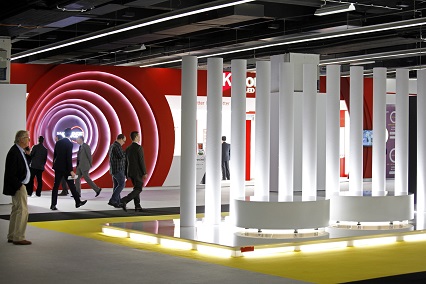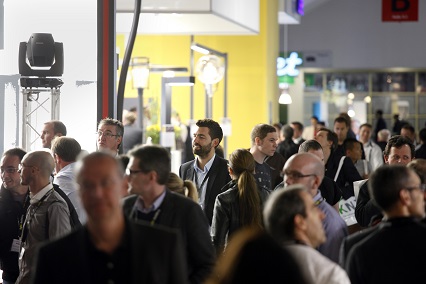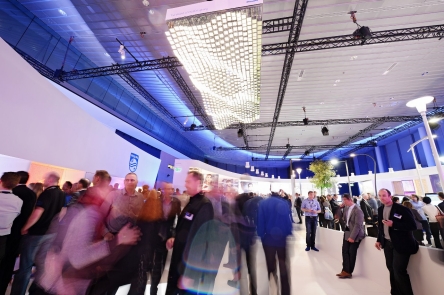Touched by light: perfectly formed lighting design in the digital age
‘Leave a light on’: the popular Belinda Carlisle song is already 25 years old, but its message is forever now, for we associate light with warmth,with safety, with a feeling of home, companionship and life. Debates around new technologies and sustainability are sensitising planners,designers and consumers to the intelligent use of artificial light.
When it comes to project planning, the distribution, output and colour of light, as well as issues of energy efficiency are essential aspects to consider. However, the following questions must be addressed first:What is the actual purpose of the lighting? How does the lighting get its form, or, to put it another way, how does its form affect the lighting
Light is not visible, but light makes other things visible. A room without any opening or artificial light source is quite simply dark. So it is all about making the environment visible, enabling us to see things. Light is the basis for visual perception. Light creates hierarchies, differentiates what is important from what is unimportant, divides space into zones and/or focuses attention and serves as a natural clock for us human beings. Particularly in today’s supersaturated, multi-media world, the biological and emotional effect of light is very significant.
Architectural lighting: light makes things visible, creates emphasis
In architectural lighting the actual light source is becoming increasingly inconspicuous. Over recent years small LEDs and planar OLEDs have brought significant changes to lighting design. The LED itself is a point light source which, depending on reflector and lens technology, can be transformed into a planar, anti-glare light source. Organic LEDs emit less light, do not last as long and cost more than standard LEDs and so their use still remains limited. For the moment at least, the expected hype surrounding this technology is yet to materialise. OLEDs can be an alternative to LEDs as planar light source, but they will certainly not replace them. Good light quality can only be achieved by combining planar and spot source lighting.
Long term exposure to extremely diffuse light tends to be tiresome and monotonous. Through light source miniaturisation designers and lighting manufacturers have endless possibilities to mould the light into the desired form. Or conversely: to integrate the light into a desired form.Whether the light becomes a feature in itself or serves to create a subtle spatial experience – the possibilities are almost limitless. With the ability to dim lights and change the colour temperature, all possible shades can be reproduced to create exactly the desired mood lighting. Very popular at the moment are shifting lighting scenarios, which users can control themselves. Whether through gesture control, app or professional lighting controls – lighting has arrived in the digital age. Smart, wireless lighting systems can be controlled via tablets and smartphones and offer the user simple solutions. Complex light management systems must, however, be planned and installed by experts. A good long-term lighting solution is based not only on the individual lighting concept, but also, in particular, on the quality of the light sources used, the materials, the electronics and their durability.



Light + Building showcases a wide variety of lighting solutions and trends
Light + Building runs from 13 to 18 March 2016 and trade visitors will discover where it makes sense to combine which light with which controller. Numerous lectures and events on all aspects of lighting and building services technology provide insights into current trends.There will be around 1,650 exhibitors to present a complete spectrum of lighting products. Designer lighting in styles from modern to classic, all kinds of technical lamps and lighting for all applications in addition to a wide selection of technical lighting components and accessories. Glimpse the future of lighting through 16 levels in Halls 1 to 6, Hall 10 and in the Forum. The range comprises everything from designer lighting in styles from modern to classical to all kinds of lamps and technical lighting for all applications, including a wide range of technical lighting components and accessories.
Through their product innovations exhibitors will also demonstrate how to walk the tightrope between creative lighting solutions and energy-efficient projects. Energy efficiency does not stand in the way of a creative solution. The reduction in energy consumption brought about by LED technology has had a very positive effect on lighting’s energy footprint.














